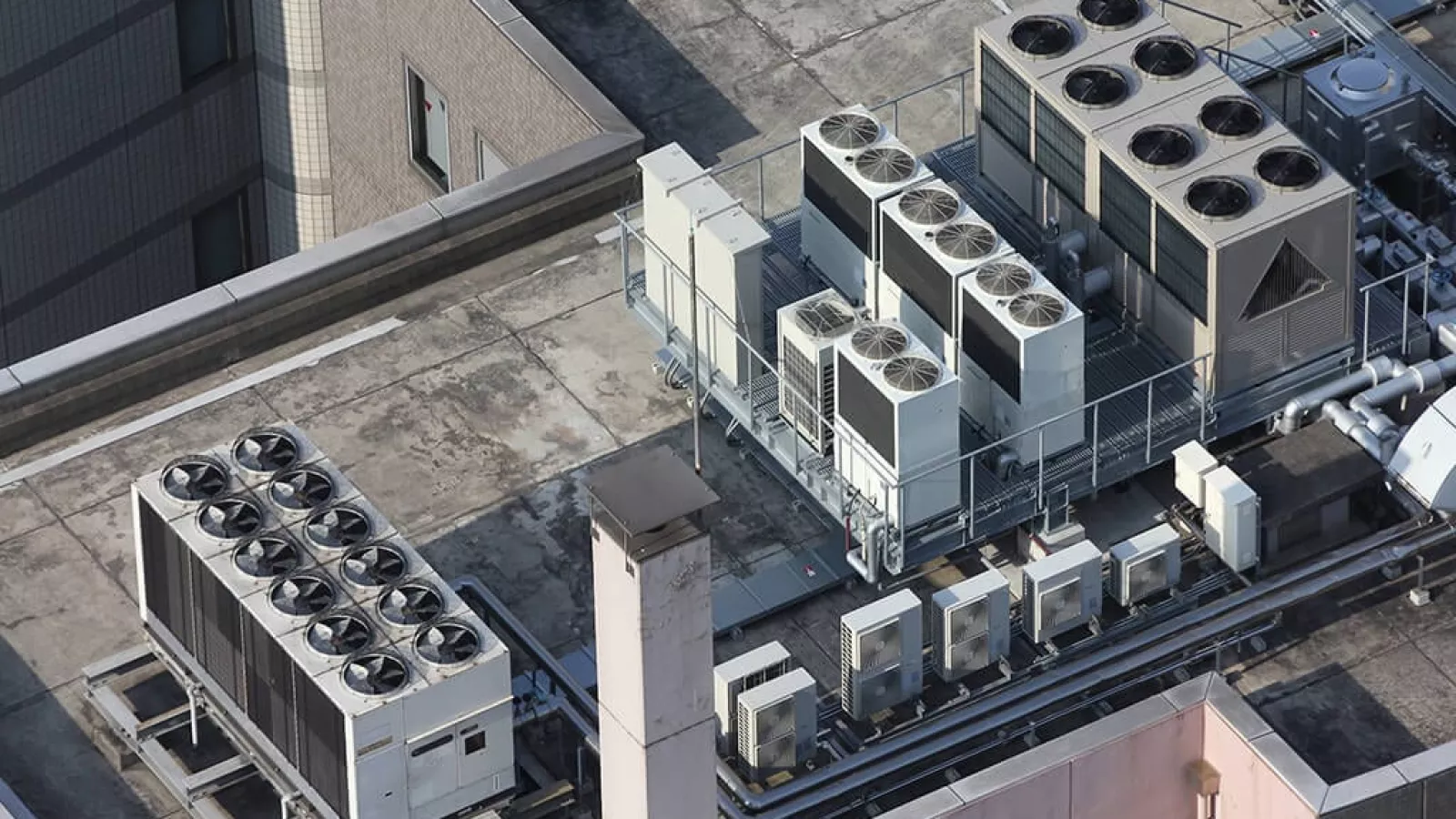
Commercial Air Conditioning
1. Introduction
In the sweltering heat of summer, commercial air conditioning systems provide a much-needed respite for businesses and their occupants. These systems play a vital role in ensuring a comfortable and productive environment within various commercial establishments. From office buildings to shopping malls, restaurants, and hospitals, a well-functioning air conditioning system is a necessity.
2. Understanding Commercial Air Conditioning
Commercial air conditioning, also known as HVAC (Heating, Ventilation, and Air Conditioning) systems, are designed to control the temperature, humidity, and overall air quality in large commercial spaces. Unlike residential air conditioning, which caters to individual homes, commercial systems are larger, more complex, and cater to a significantly larger number of people.
3. Benefits of Commercial Air Conditioning
- Enhanced Comfort: One of the primary advantages of commercial air conditioning is the enhanced comfort it provides to employees, customers, and visitors. A comfortable environment promotes better concentration and productivity.
- Improved Air Quality: High-quality air filters in these systems can remove dust, pollutants, and allergens from the air, creating a healthier indoor environment.
- Equipment Protection: Commercial air conditioning helps protect sensitive equipment, such as computers and machinery, from overheating and potential damage.
- Customer Satisfaction: Businesses that prioritize customer comfort through an efficient cooling system tend to earn higher customer satisfaction and loyalty.
4. Types of Commercial Air Conditioning Systems
There are several types of commercial air conditioning systems available in the market. Some common ones include:
- Packaged Air Conditioning Systems: Ideal for small and medium-sized businesses, these systems have all their components housed in a single unit and are placed outside the building.
- Split Air Conditioning Systems: These systems have an indoor and an outdoor unit connected by refrigerant lines. They are suitable for larger commercial spaces.
- Variable Refrigerant Flow (VRF) Systems: VRF systems offer flexibility by allowing different zones within a building to be cooled or heated independently.
- Chilled Water Systems: Often used in large commercial buildings, chilled water systems utilize chilled water to cool the air.
5. Factors to Consider When Choosing a Commercial Air Conditioning System
When selecting a commercial air conditioning system, several factors should be taken into account:
- Size of the Space: The cooling requirements vary based on the size of the commercial space that needs to be cooled.
- Energy Efficiency: Opt for energy-efficient systems to reduce operational costs and minimize environmental impact.
- Installation Cost: Consider the initial investment and long-term maintenance costs to find a system that fits the budget.
- Scalability: Ensure the system can accommodate future expansions or changes in the building layout.
6. Energy Efficiency in Commercial Air Conditioning
Energy efficiency is a crucial aspect of any commercial air conditioning system. By investing in energy-efficient systems, businesses can significantly reduce their energy consumption and operational costs while contributing to environmental preservation.
7. Regular Maintenance and Upkeep
Proper maintenance of commercial air conditioning systems is essential to ensure their optimal performance. Regular inspections, filter replacements, and cleaning are necessary to prevent breakdowns and maintain energy efficiency.
8. Troubleshooting Common Issues
Commercial air conditioning systems may encounter problems such as refrigerant leaks, frozen coils, or faulty compressors. Identifying and addressing these issues promptly is crucial to avoid prolonged downtime and costly repairs.
9. Cost of Installing and Maintaining Commercial Air Conditioning
The cost of installing a commercial air conditioning system can vary depending on the size of the space, the type of system chosen, and any additional customizations required. Similarly, ongoing maintenance costs should also be considered when budgeting for these systems.
10. Selecting the Right HVAC Contractor
Choosing the right HVAC contractor is vital to ensure proper installation, maintenance, and repair of commercial air conditioning systems. Look for experienced and certified contractors with a track record of delivering quality services.
11. Top Brands in the Commercial Air Conditioning Market
Several reputable brands offer high-quality commercial air conditioning systems. Researching and selecting a trusted brand can ensure reliability and longevity of the system.
12. The Future of Commercial Air Conditioning Technology
The commercial air conditioning industry is continuously evolving, with advancements in technology leading to more energy-efficient and environmentally friendly systems. Embracing these innovations can provide businesses with a competitive edge.
13. Sustainable Practices in Commercial Air Conditioning
Businesses can adopt sustainable practices to reduce their carbon footprint. Strategies such as solar-powered air conditioning and optimizing energy usage contribute to a greener environment.
14. Enhancing Indoor Air Quality
Maintaining excellent indoor air quality is essential for the health and well-being of occupants. Regular maintenance, air purification systems, and proper ventilation help achieve this goal.
15. Conclusion
In conclusion, commercial air conditioning systems are indispensable for creating a comfortable, productive, and welcoming environment for businesses and their customers. Choosing the right system, prioritizing energy efficiency, and investing in regular maintenance are key to enjoying the benefits these systems offer.





0 comments
Write a comment